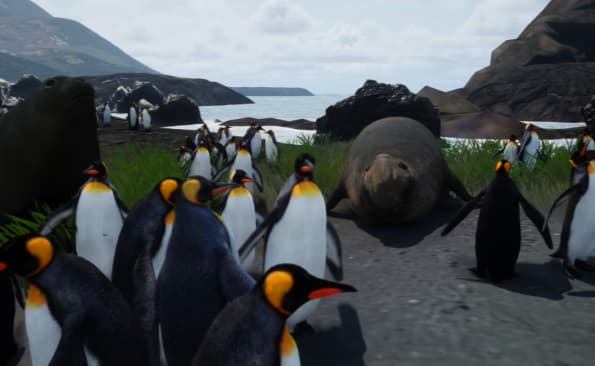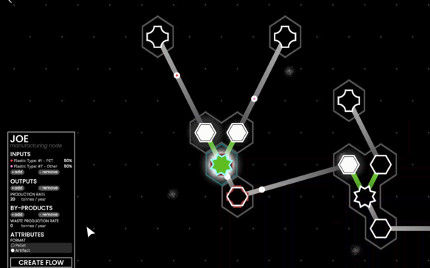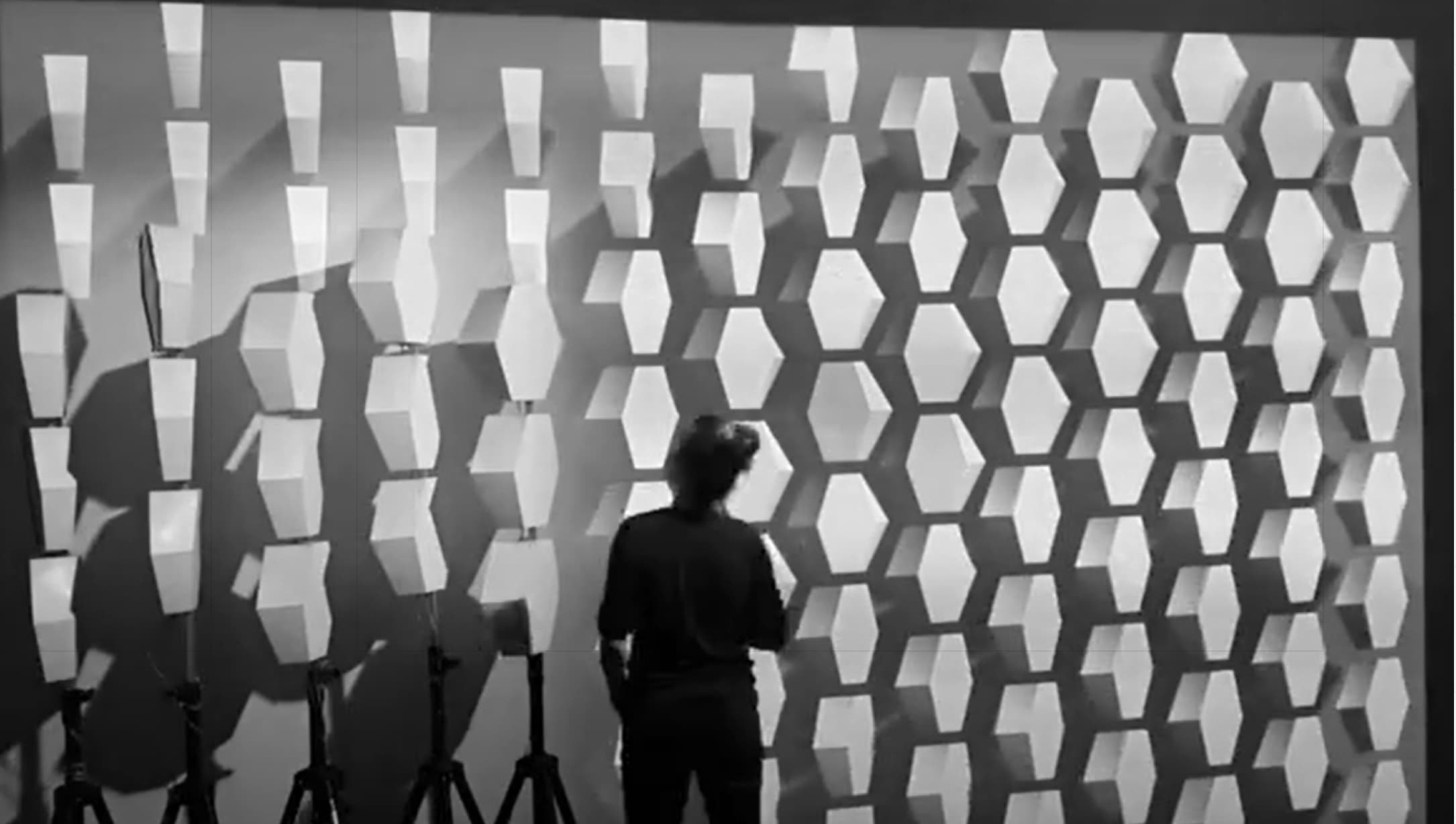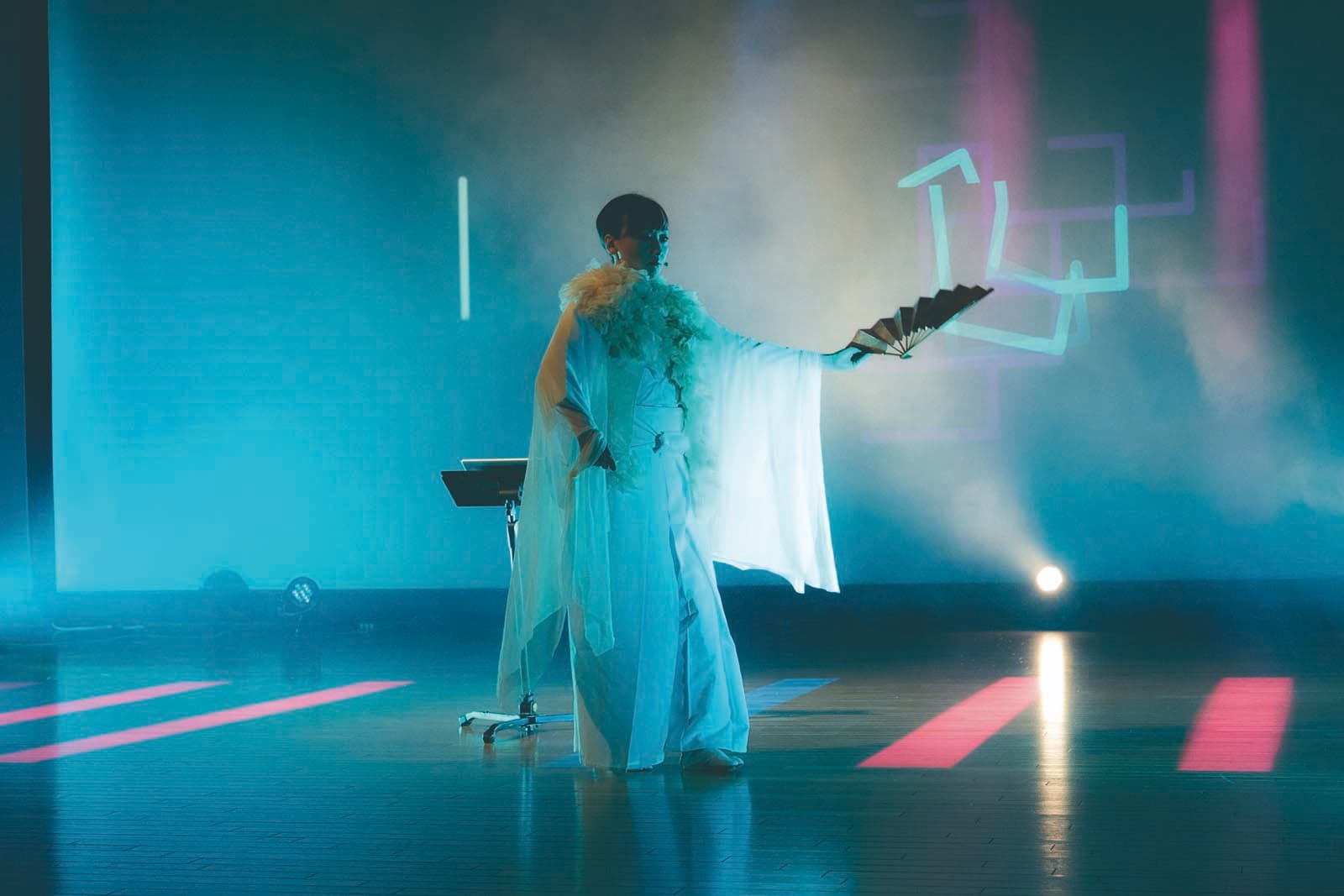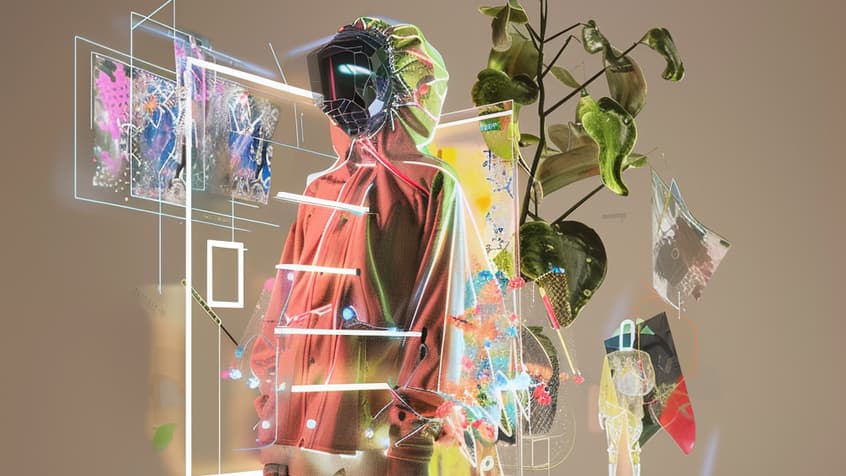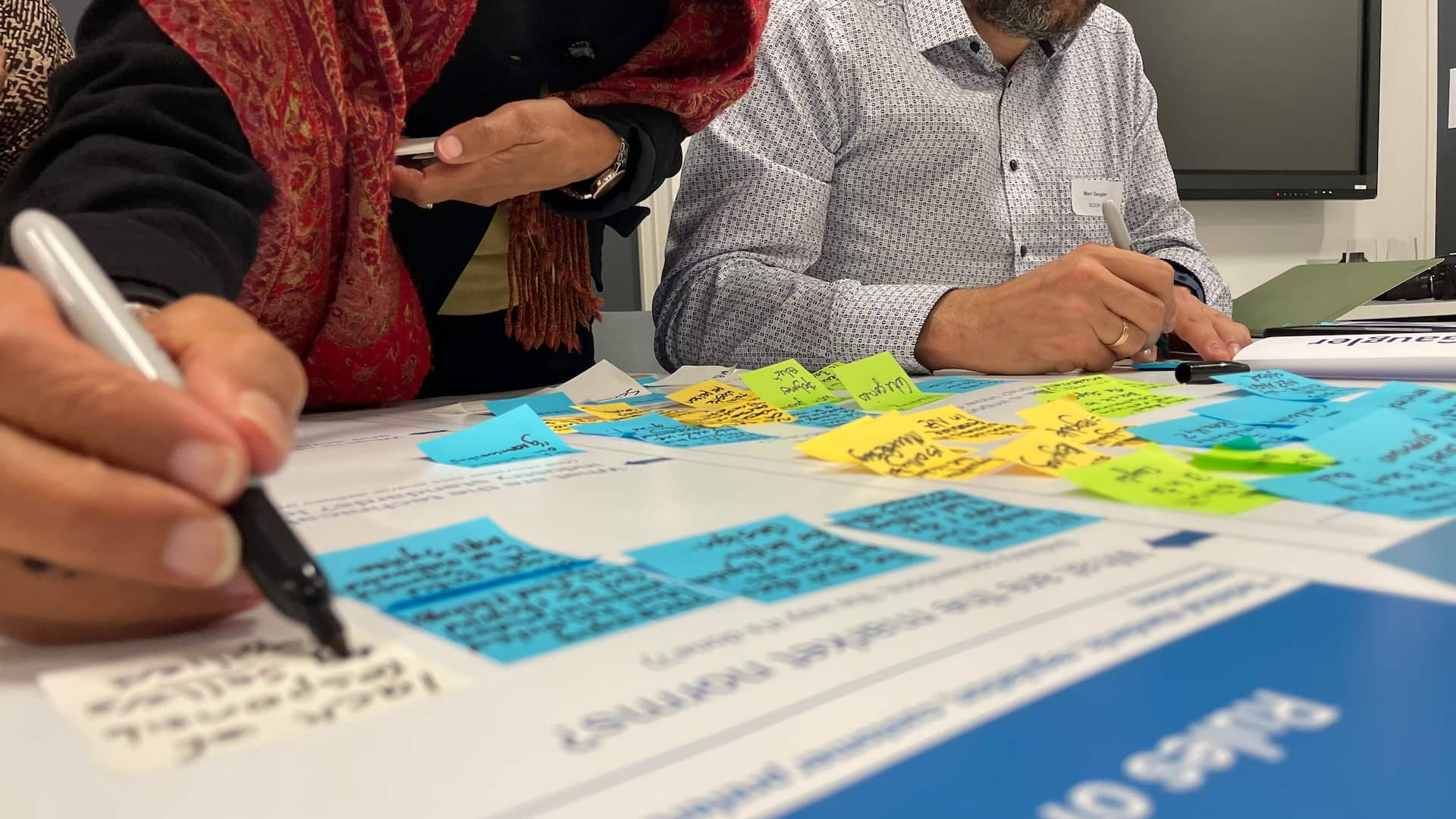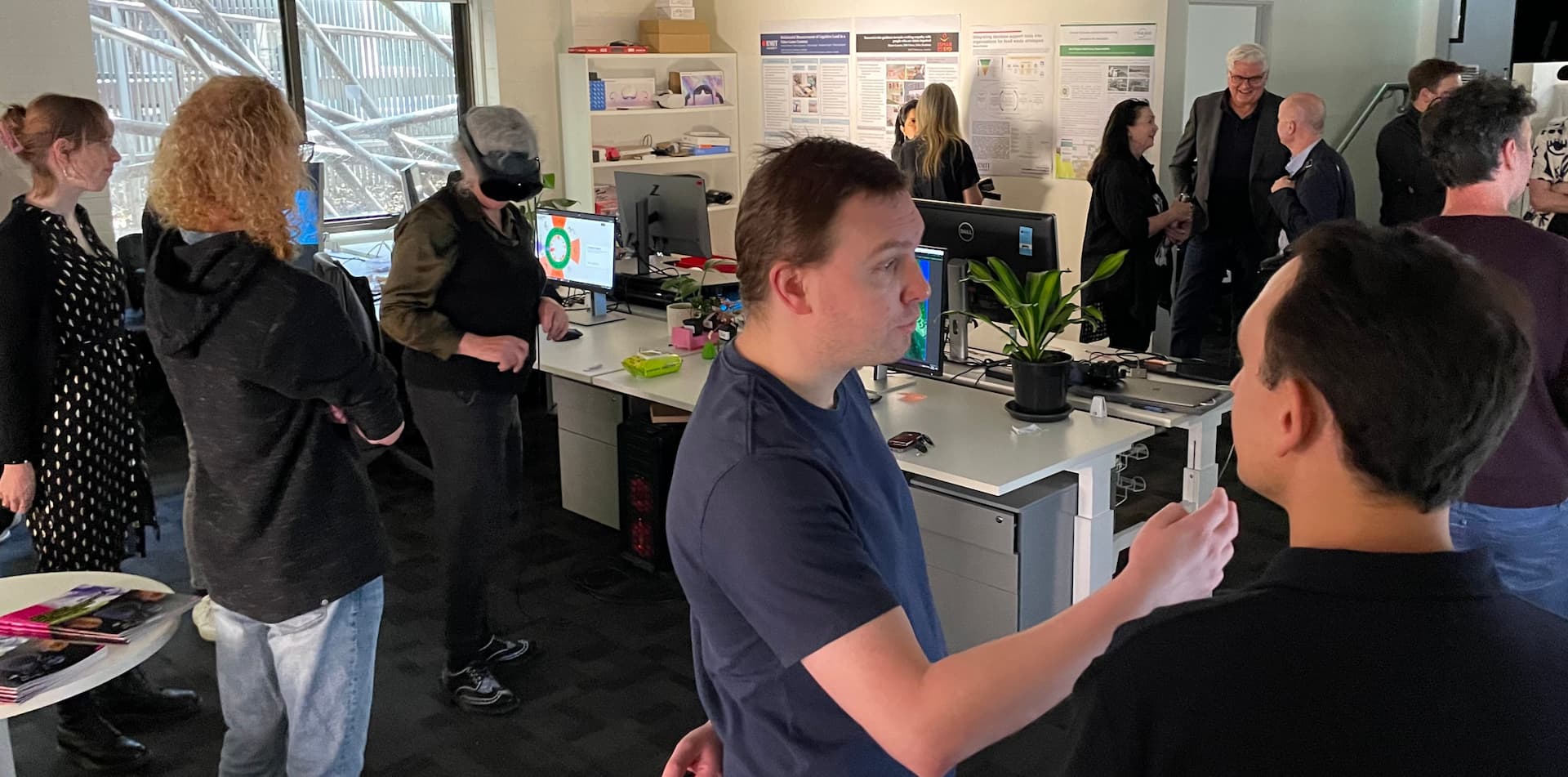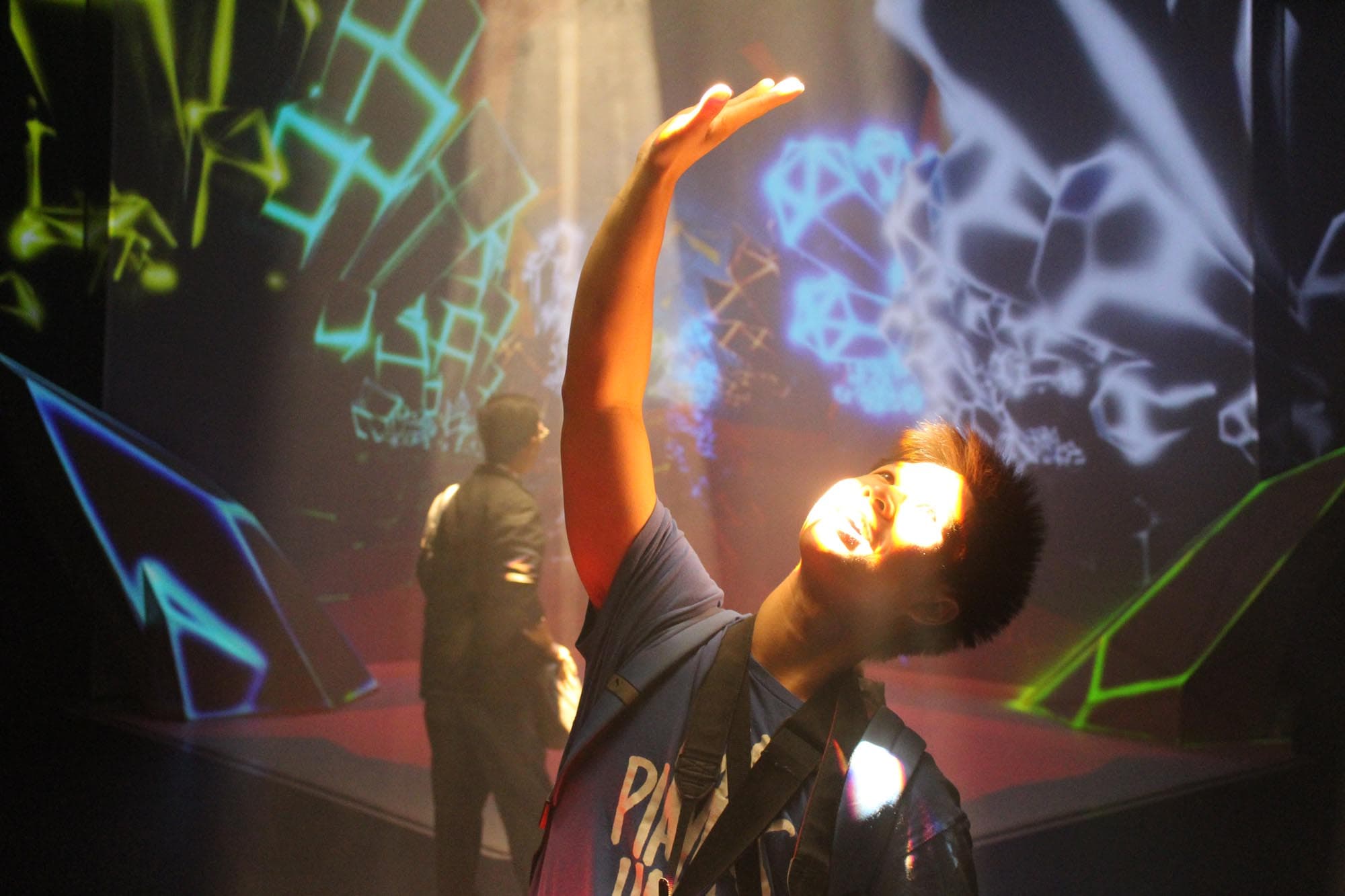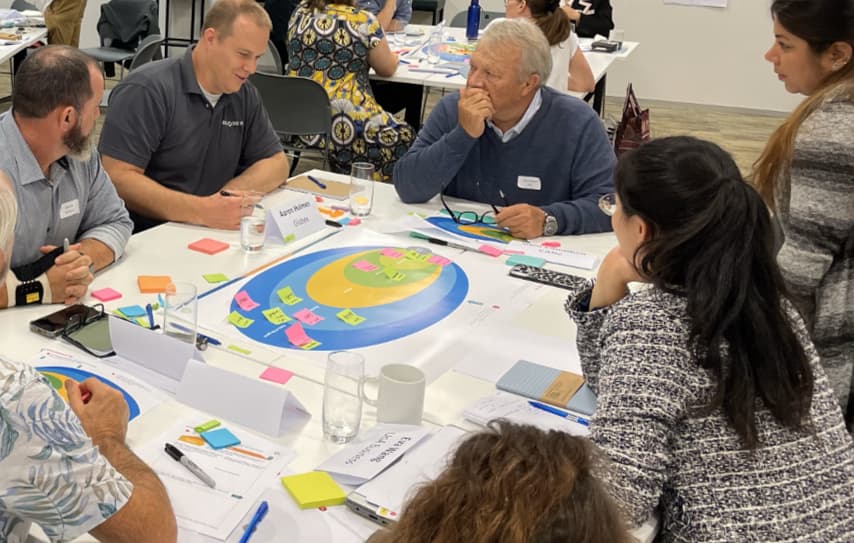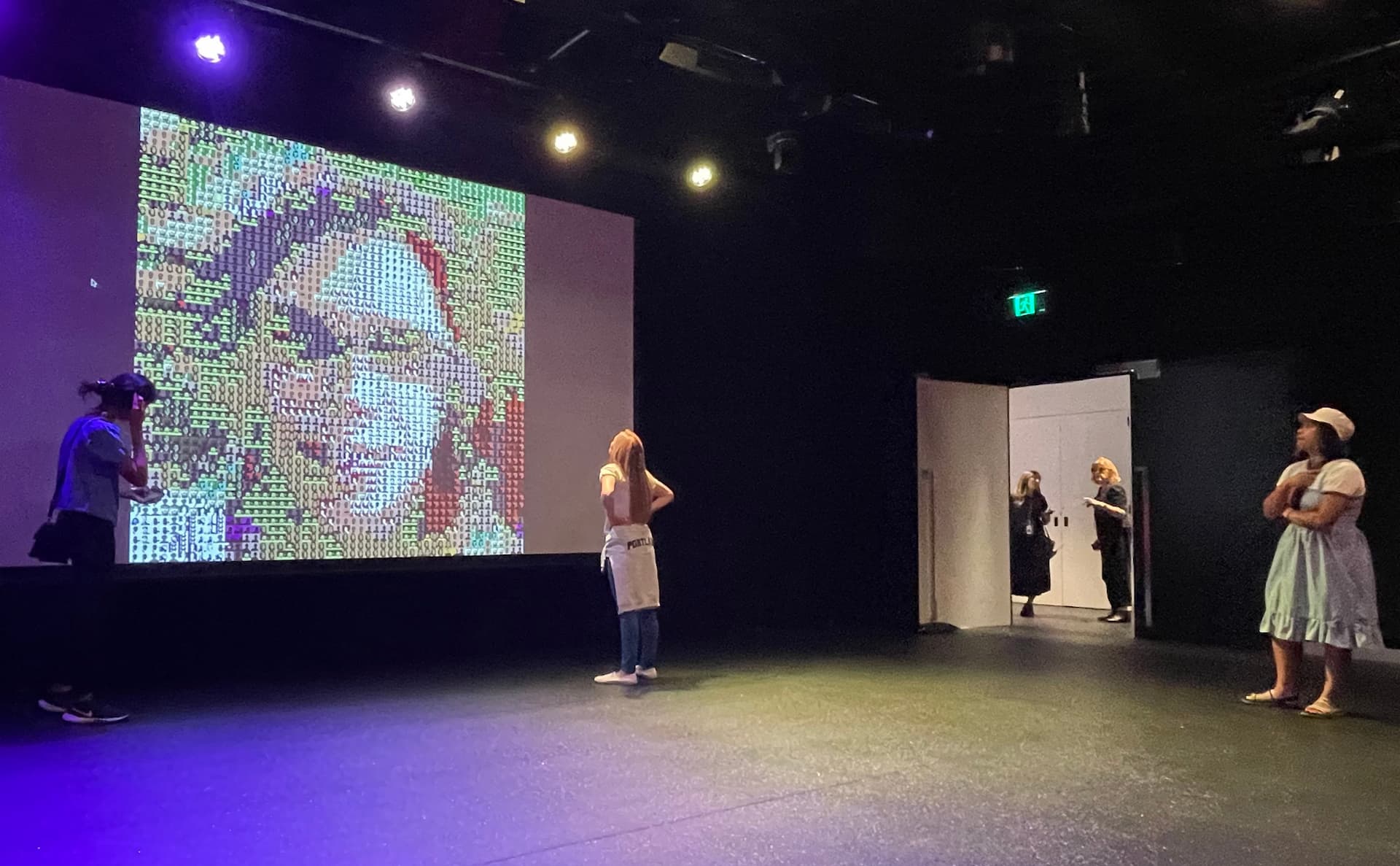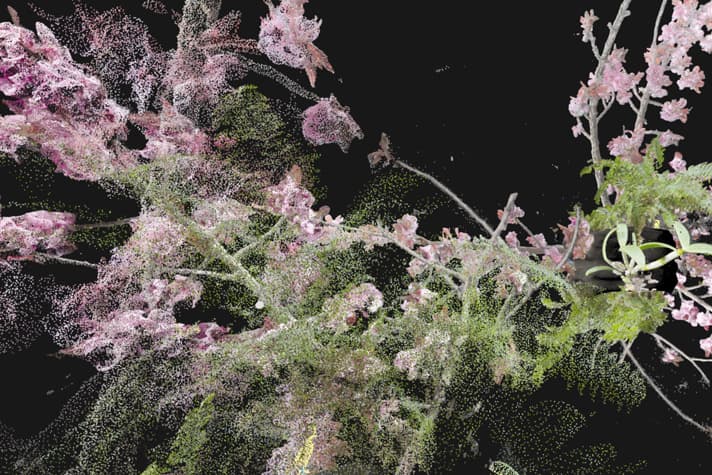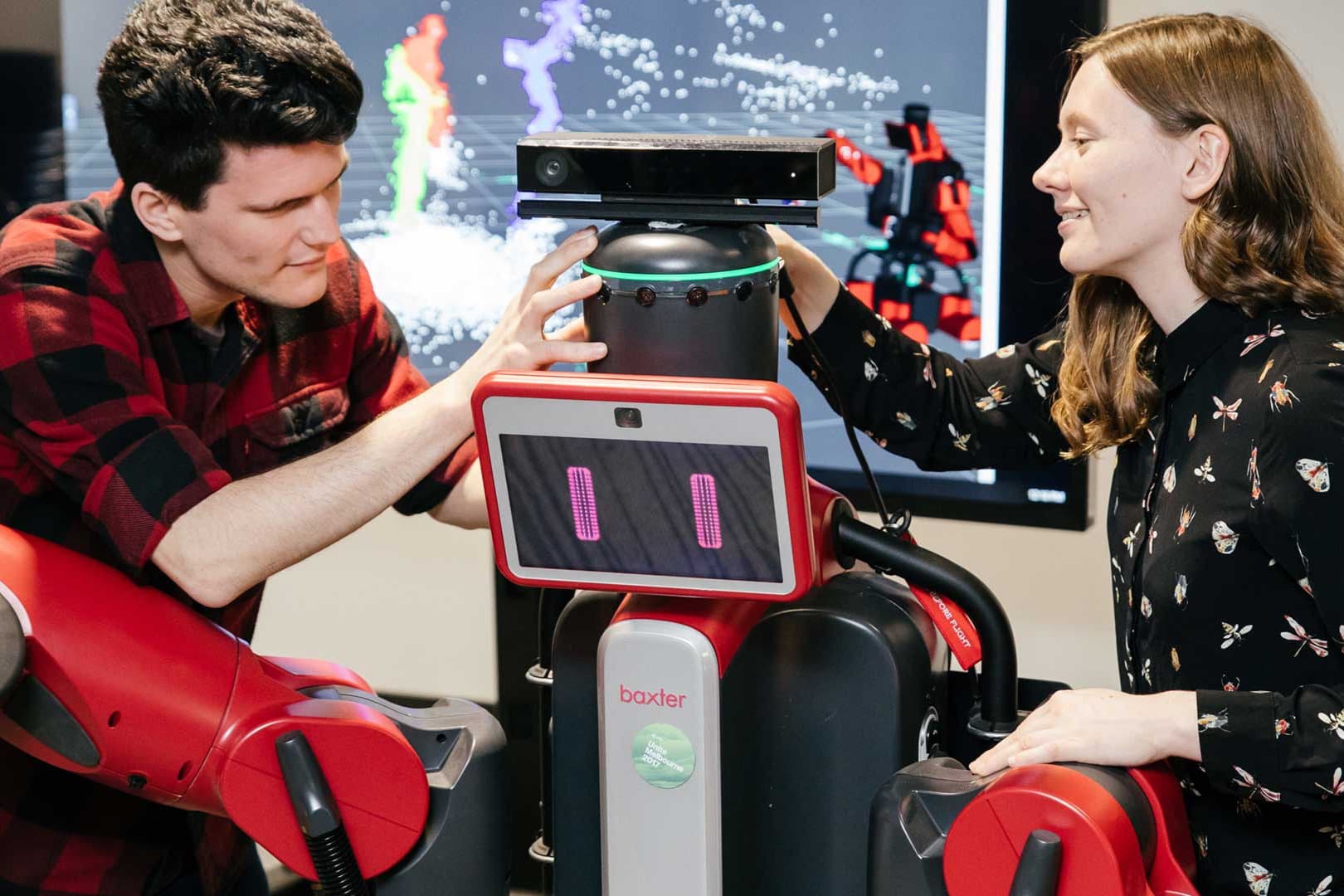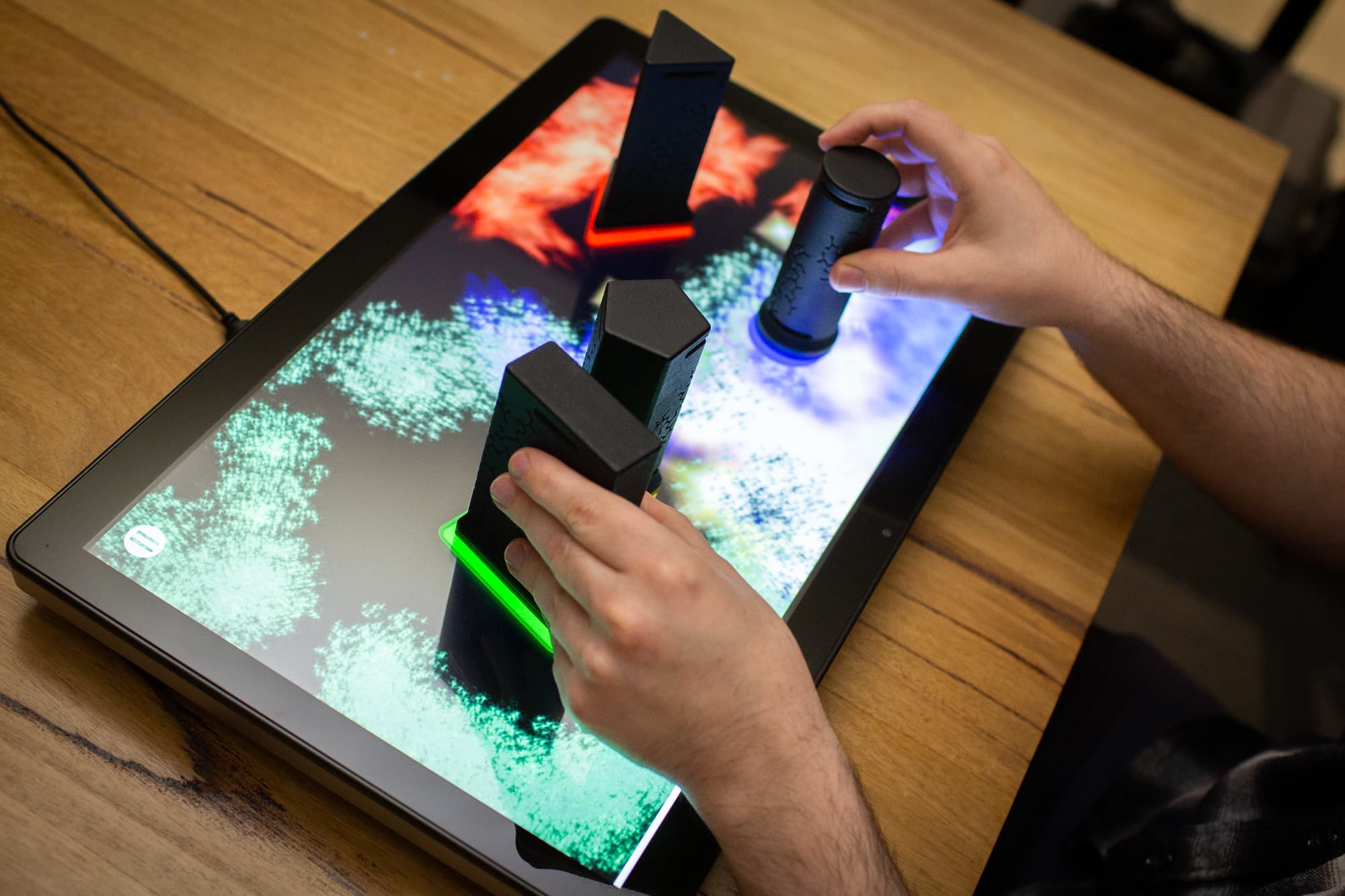System complexities
Working in the mess of complex systems to find ways to reduce harm and improve circularity
Dynamic interfaces
How we visualise ecosystem dynamics and provide ways to explore the consequences of intervention
Hybrid environments
Innovation in digital infrastructures and experiences across physical and digital spaces
Cultural practices
Diverse collaborations to encourage emergent practices across creative, scientific, and technological disciplines
Emerging economies
As always, inventions with digital technologies can lead to surprising social behaviours, new economic models, and urgent regulatory attention
Custom methods
All experimental and rigorous research requires and develops precise models and tools to refine our methods and metrics of practice and impact

